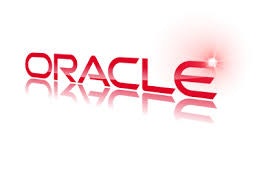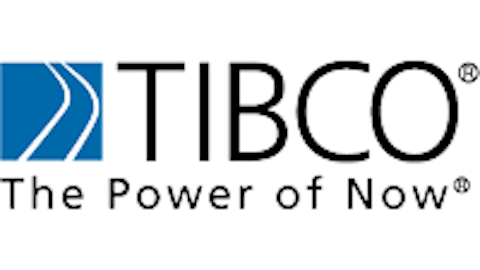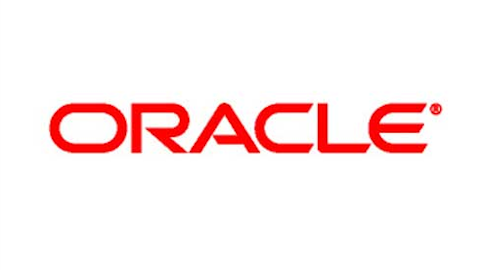
Oracle returned a lot of cash to its shareholders
Investors are feeling bearish about Oracle Corporation (NASDAQ:ORCL), sending its share price down 9% to only $30.30 per share within only one trading day. The market reacted negatively to Oracle’s share price after the company reported its sluggish fourth quarter performance. Its revenue was flat compared to the revenue in the fourth quarter of last year, coming in at $10.95 billion which was lower than analysts’ estimates of $11.12 billion. However, Oracle has managed to increase its bottom line by 10% to $3.8 billion, or $0.80 per share.
For the full year 2013, its revenue also stayed flat at around $37.18 billion while the net income grew a bit, from $9.98 billion last year to more than $10.9 billion. Its diluted earnings per share rose from $1.96 to $2.26 during the same period. Safra Catz, the Oracle Corporation (NASDAQ:ORCL) resident and CFO, felt positive about its operating performance. Catz mentioned that with a high non-GAAP operating margin at 47% for the full year, Oracle had managed to generate more than $14 billion in operating cash flow and increase the its cash level to $32 billion. She also said that the company had returned nearly 90% of its cash flow to shareholders via both dividends and share repurchases.
Oracle has been quite active in expanding its footprint in the cloud business. Oracle Corporation (NASDAQ:ORCL) acquired Eloqua, a web-based on-demand revenue performance management for improved revenue predictability, for around $870 million at the end of last year. One of its direct peers in cloud computing services, salesforce.com, inc. (NYSE:CRM), also grew its cloud business by spending around $2.5 billion to acquire ExactTarget, a cloud-based digital marketing company. Salesforce mentioned that this acquisition will establish a marketing platform across different channels including email, mobile, social and the web.
Salesforce’s and Oracle’s partnership in cloud computing
To become much stronger players in the cloud, both companies should shake hands with each other. Interestingly, just a few days ago, Salesforce and Oracle Corporation (NASDAQ:ORCL) announced a nine-year partnership in three main cloud computing areas: Applications, Platform and Infrastructure. Both companies realized that they needed to integrate their clouds with each other. Larry Ellison, Oracle’s CEO, said
When customers choose cloud applications they expect rapid low-cost implementations; they also expect application integrations to work right out of the box – even when the applications are from different vendors. That’s why Marc (Salesforce’s Chairman and CEO) and I believe it’s important that our two companies work together to make it happen, and integrate the salesforce.com, inc. (NYSE:CRM) and Oracle clouds.
At $30.70 per share, Oracle Corporation (NASDAQ:ORCL) is worth around $143.90 billion. The market values Oracle 7.4 times its trailing EBITDA (earnings before interest, taxes, depreciation, and amortization) and 3.84 times its sales. Salesforce, on the other hand, has a much higher valuation. At $38.20 per share, it is worth more than $22.5 billion on the market. The market values Salesforce at nearly 7.1 times its sales and more than 300 times its trailing EBITDA.
Hewlett-Packard – good future but a lot of goodwill and intangible assets
In 2011, Hewlett-Packard Company (NYSE:HPQ) spent around more than $10 billion to acquire Autonomy, only to write it off at as much as $8.8 billion in the last quarter of 2012. Interestingly, out of those $8.8 billion impairment charges, $5.5 billion was caused by “serious accounting improprieties.”
Since the beginning of the this year, however, Hewlett-Packard Company (NYSE:HPQ)’s share price performance has been quite outstanding, rising as much as 74% to $24.80 per share.
The company has been experiencing an ongoing business restructure under the leadership of Meg Whitman. She realizes the importance of an increasing mobile computing trend, saying that Hewlett-Packard Company (NYSE:HPQ) was moving towards that. On the other hand, Whitman feels that the company has to adapt to the fast-changing nature of the technology field.
According to Barron’s, Hewlett-Packard Company (NYSE:HPQ) was Goodhaven’s top holding. Pitkowsky, the Managing Partner at Goodhaven’s fund, commented that Hewlett-Packard Company (NYSE:HPQ)’s $20 billion debt was lower than it seems to have as the company did not have a separate financing arm. Consequently, a lot of its long-term debt was offset by customer receivables. Looking forward, the company will reduce costs, divest non-performing assets to grow its earnings in the next year.
At $24.80 per share, it is worth $47.80 billion on the market. The market values Hewlett-Packard Company (NYSE:HPQ) at nearly 4.4 times its trailing EBITDA. What makes me worry, though, is the company’s huge goodwill and intangible assets of more than $35 billion, which is much higher than its equity of $22.5 billion. The huge amount of goodwill and intangible assets are quite vulnerable to future write-offs, wiping out its equity.
My Foolish take
Among the three companies, I like Oracle Corporation (NASDAQ:ORCL) the most with its global leading positions, profitable operations and a lower valuation compared to Salesforce. Moreover, it offers its investors a dividend with a yield of 1.6%. Interestingly, it was quite conservative in dividend payment with a low payout ratio at only 13%. The company could easily increase its payout ratio to return more cash to its shareholders via dividends.
The article What Technology Business Is Good for Us to Buy Now? originally appeared on Fool.com and is written by Anh Hoang.
Anh HOANG owns shares of Oracle. The Motley Fool recommends salesforce.com, inc. (NYSE:CRM). The Motley Fool owns shares of Oracle Corporation (NASDAQ:ORCL). Anh is a member of The Motley Fool Blog Network — entries represent the personal opinion of the blogger and are not formally edited.
Copyright © 1995 – 2013 The Motley Fool, LLC. All rights reserved. The Motley Fool has a disclosure policy.





